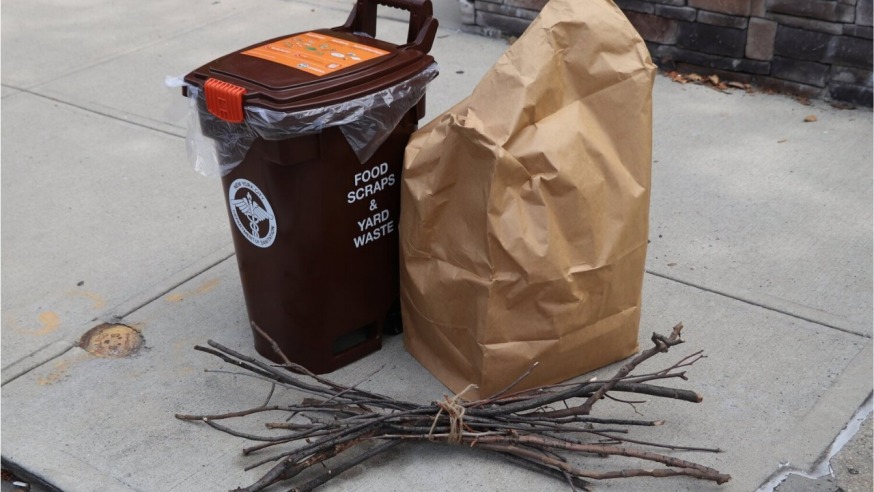
Curbside composting will return to the streets of Queens in the fall (Photo via makecompost.nyc)
Aug. 9, 2021 By Michael Dorgan
Curbside composting will be making a return in the fall.
The Dept. of Sanitation (DSNY) announced last week that it will begin its free service of collecting food scraps, food-soiled paper and other organic waste from outside homes and residential buildings in select areas sometime in October.
Curbside composting was suspended by the city in May 2020 following budget concerns shortly after the outbreak of the COVID-19 pandemic. Around 3.5 million New Yorkers were using the service before it was put on hold, the DSNY said.
However, the DSNY announced last week that the service will resume in the coming months.
“We are very happy to have received the funding needed to help restart our curbside composting program,” Sanitation Commissioner Edward Grayson said in a statement.

The service will be offered in the areas marked in orange. However, residents in those zones must register for the service once again. (Source DSNY)
Curbside composting keeps certain waste items out of landfills, thereby reducing greenhouse gas emissions, according to the DSNY. The scraps are then turned into nutrient-rich soil–which is used as fertilizer at city parks, among other uses.
DSNY workers will recommence picking up waste in many areas of Queens. The pickups will be in neighborhoods such as Sunnyside, Long Island City, Woodside, Maspeth, Ridgewood, Middle Village, Flushing, College Point, Bayside, Laurelton and more. Find out if your neighborhood is covered by clicking on the map here.
However, residents who live in these areas must register for the program.
The DSNY is calling on residents who live outside the areas currently being served to make a request. The agency is looking for input as to where the service should be expanded.
The program is available to residents who live in buildings of all sizes, although residents who live in multi-unit apartment buildings must have management approval.
Interested participants are asked to complete the registration form by clicking here.
If you do not have a DSNY-issued brown bin, you can request one when you sign up and DSNY will deliver it before your service begins.
- What Goes in the Brown Bin
ALL FOOD including:
- coffee grounds and tea bags
- shells (seafood, nut, and egg)
- bones
- spoiled and expired food
- food soiled paper (napkins, towels, uncoated plates, bags, trays, boxes)
Yard and Plant Waste
DO NOT put in:
- Trash of any kind including:
- diapers and hygienic products
- animal waste
- wrappers and packaging
- foam products
- Recyclables including:
- metal
- glass
- rigid plastic
- beverage cartons
- clean recyclable paper
- cardboard
4 Comments

Does the city really compost this stuff or does it actually wind up in a dump like 90% of New York’s supposed recycling.
This is not a good idea. There has been a surge of
Rats running around not to mention the raccoons.
The compost would just attract them.
yes, i’ve noticed quite a few raccoon families around sunnyside.
It cost me thousands of dollars to remove a raccoon from my garage. Some of it went to a licensed exterminator to remove the raccoon and some of it went to a contractor who had to make sure that the raccoon would not come back or any other raccoon . The city was of no help.